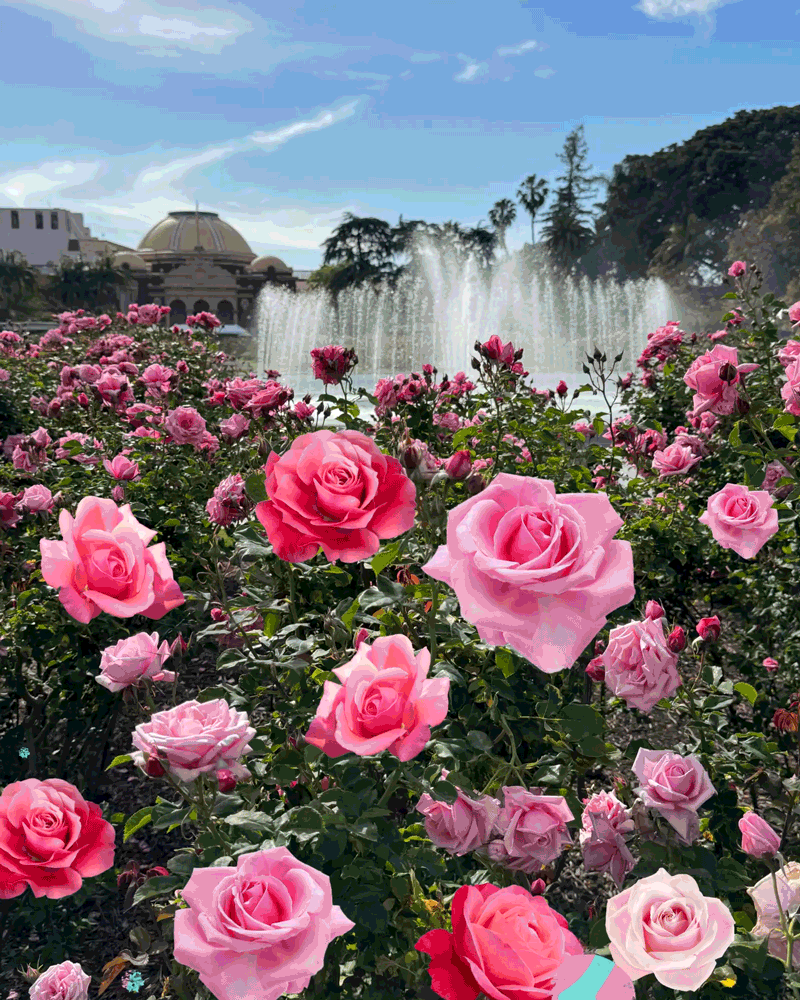French Names a Thorny Problem for Rose Lovers
- Share via
There are few antique rose names that expert Sharon Van Enoo can pronounce with confidence, a serious handicap considering that she regularly lectures overseas on the thorny heirlooms and leads a volunteer group at the Huntington Botanical Gardens.
Like many American antique rose enthusiasts, she speaks no French, the native tongue of the woman who made rose gardening famous: French Empress Josephine Bonaparte.
Consequently, the gardeners who consider their hobby a form of historic preservation often butcher the pronunciations, Van Enoo said.
“We all slaughter the names and spend most of our time apologizing for how we say French words,” she said.
On Saturday morning, a group of dedicated rose lovers gathered in a classroom at the Huntington in San Marino for a lesson from retired French teacher and fellow rose enthusiast Mary Carpenter.
The group of about 25 dedicated gardeners, many of whom traveled from outside Los Angeles for the class, groaned like teenagers as Carpenter prompted them to enhance the nasal vowels or the throaty French Rs of the rose names that honor French nobility, artists and war heroes.
Even Clair Martin, the curator of the Huntington’s world famous rose garden and a celebrity in rose culturist circles, was corrected by Carpenter on a few of his pronunciations.
For many, the lesson demystified names they had struggled with for years. There were expressions of relief and understanding as Carpenter led the class syllable-by-syllable through the confounding Sombreuil, Ghislaine de Feligonde, Fantin-Latour and General Gallieni.
After the language class, Weston Furukawa said he learned more French on Saturday than he did during two years in high school. Others said the class was a great refresher course.
Van Enoo said everyone went home relieved.
“We felt like we could tackle a few of the names that have been frustrating us for a long time,” Van Enoo said. “We learned the French rules.”
Van Enoo organized the class after one too many embarrassments with the language. During a recent rose lecture at the Chateau Hex in Belgium, Van Enoo realized that her pronunciation was incomprehensible to the native speakers.
“As I was speaking, [a Belgian friend] would go and correct it for the audience so they understood it,” she said.
Rose names are serious business among culturists, who often use masculine or feminine pronouns to refer to each plant, and they know every delicate bloom by name.
They discuss their gardens as others might their grandchildren, beaming with pride over successes and shaking their heads in shame when their hopes prove too high.
Their patron saint is Josephine, whose love of roses and other plants came from her desire to re-create the lush gardens of her home in Martinique. She paid expert gardeners to cultivate new roses for her chateau.
With each rose name there are legends and true stories that captivate rose lovers.
Sombreuil was a heroine of the French Revolution who reportedly sipped the blood of an aristocrat to prove to a guillotine-happy crowd that she was a commoner and deserved to live.
General Gallieni helped save Paris in World War I by sending taxicabs full of soldiers to fight off German troops.
And Ghislaine de Feligonde saved her husband during World War I by crossing enemy lines to pull him from a barbed wire fence after his fellow soldiers left him to die.
“I always have her in the garden,” Martin said. “Because I just think it’s a great name.”






